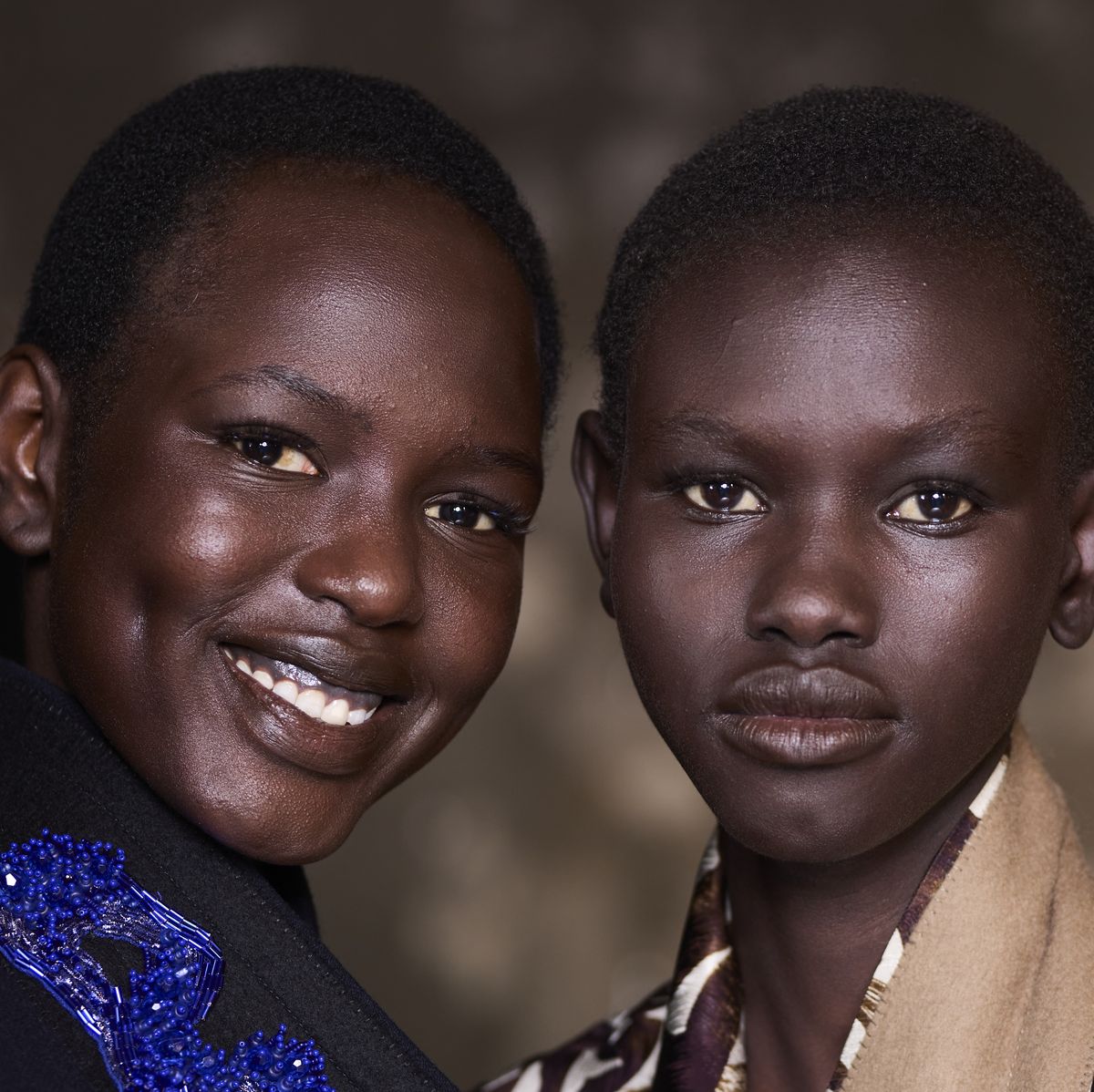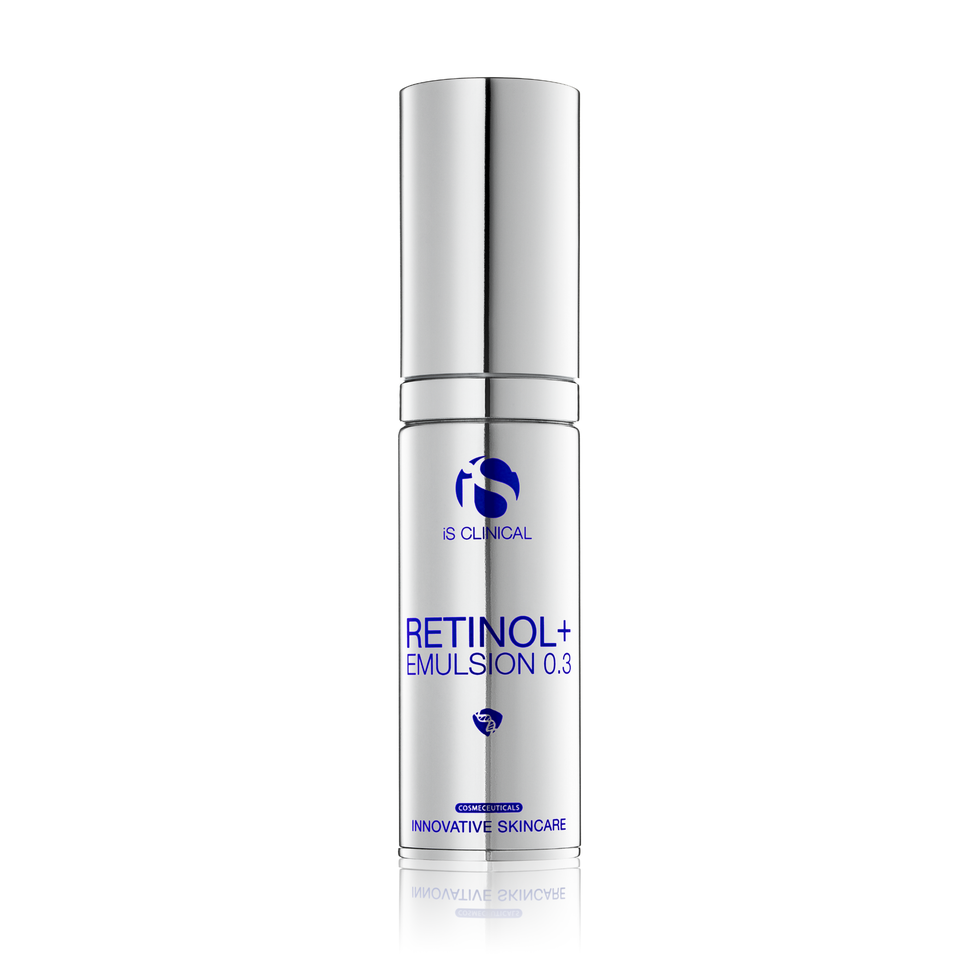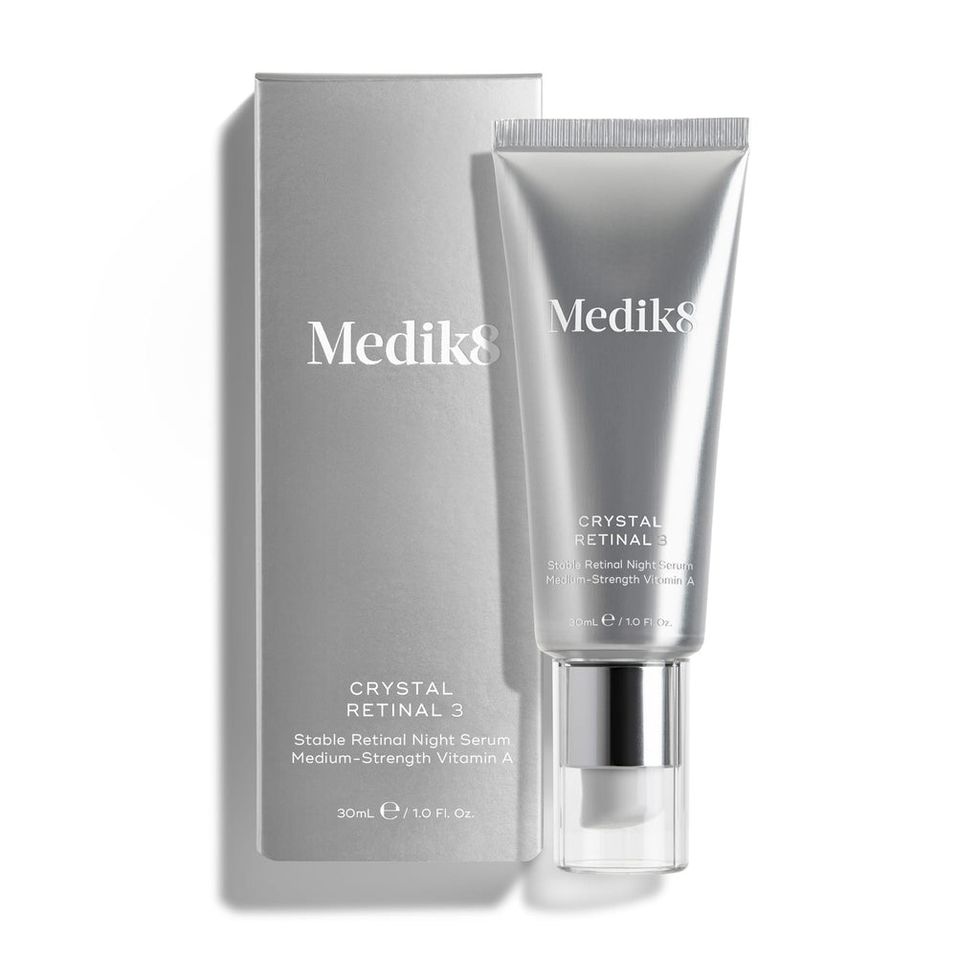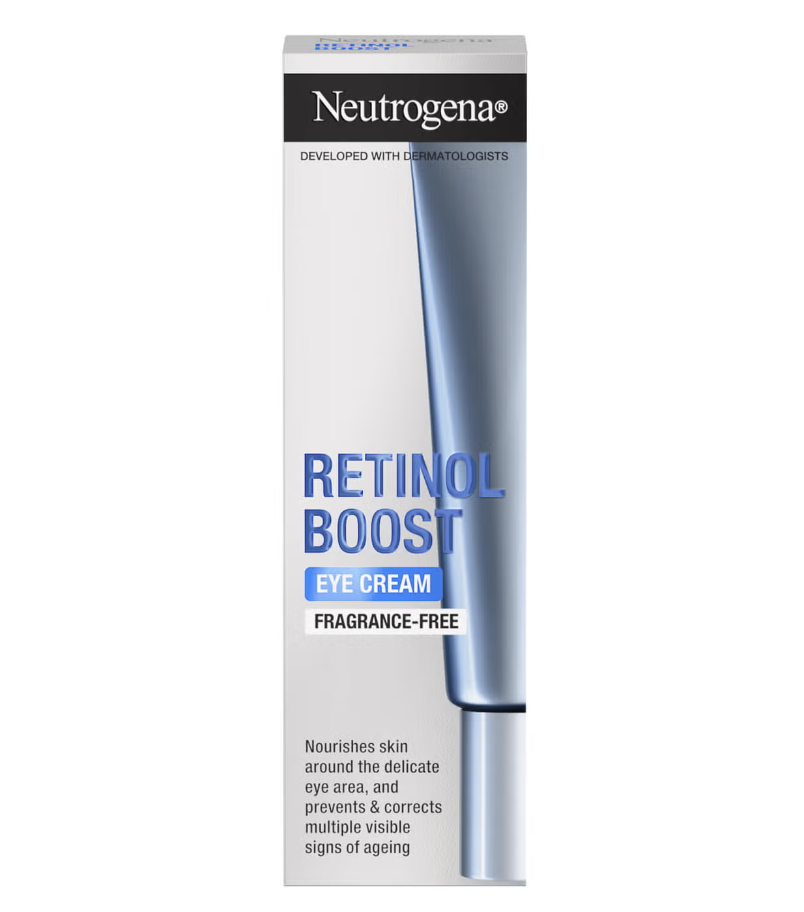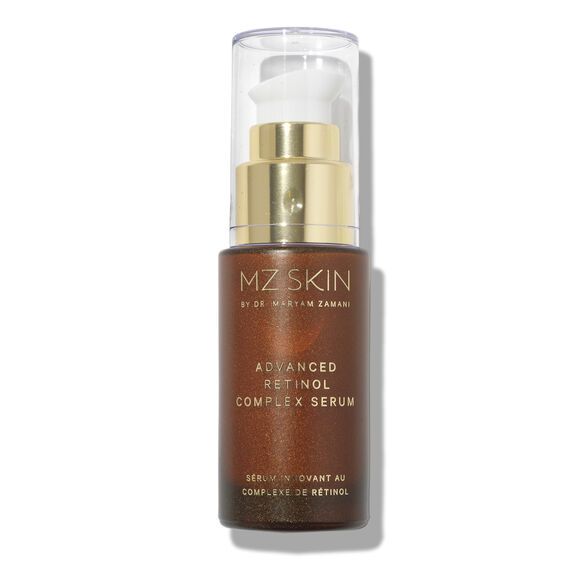If you’re a skincare buff, you’ll know that retinol is considered the ‘gold standard’ ingredient by dermatologists and formulators thanks to the hard-hitting clinicals that prove its efficacy on the skin.
However, the EU has now decided you can have too much of a good thing and is clamping down on the amount of retinol used in our skincare products. While it won’t be disappearing completely, the new rules state that there will be a 0.3% retinol limit for leave-on and rinse-off skincare products and a 0.05% cap for bodycare products.
That doesn’t mean that your favourite retinol products will suddenly be discontinued, as reformulating takes time and brands have until 2026 to ensure their products comply, but there will no doubt be some that fall victim and vanish and some that switch to ‘prescription only’.
Why the new retinol rules?
Skincare science is ever evolving which means the legislation that protects it needs to be continuously reviewed too. This latest law, enforced by the Scientific Committee of Consumer Safety (SCCS) - a group of toxicology and safety experts for non-food consumer products - is simply there to ensure cosmetic products are always safe for the consumer.
FIND OUT MORE ON ELLE COLLECTIVE
'The regulators have looked at "worst case" scenarios of vitamin A exposure levels – that’s people who eat high amounts of vitamin A in their diet, apply high doses of vitamin A in their skincare, and have lots of exposure to vitamin A from other areas such as supplements and medicines,' explains Daniel Isaacs, chief product officer at Medik8, which has several retinol products in its portfolio. 'The blanket restrictions have been put in place as a precaution to help reduce the risk of overexposure to vitamin A.'
What are the risks of too much vitamin A?
While Vitamin A in its own entity is completely safe, 'it’s probably the most prescribed ingredient in my practice and is one of the most well-studied ingredients', says Dr Ahmed El Muntasar, a GP and an award-winning aesthetician, who notes that too much applied topically or used incorrectly can cause skin irritation, dryness, flaking and for darker skin tones, hyperpigmentation. When this tips over into more than the recommended dietary allowance (over 3000 ug) because of ingested forms of vitamin A, side effects (and it’s important to remember this is a worst case scenario here), include liver damage, headaches, nausea, bone thinning, and birth defects.
'Vitamin A is essential to support cell growth, immune function and healthy vision and if you don’t get enough, it can be a major driver for under active thyroid and skin issues,' explains Hannah Alderson, BANT-registered nutritionist and hormone specialist. 'At the same time, the overconsumption of preformed vitamin A – from food sources such as liver and fish oil – can be toxic and something one needs to be mindful of, especially when trying to conceive or if you’re pregnant.'
The big difference with Vitamin A is that, rather than being water soluble like many other vitamins, it’s fat soluble so your body can’t get rid of it in the same way it can vitamins B and C, and that’s where the risk of overconsumption comes in. If you do want to ensure you’re getting enough vitamin A from your diet, Hannah advises stockpiling ‘provitamin A’ from vegetables, rather than ‘preformed A’ from meat sources. 'Several plant compounds convert to vitamin A and you can’t overdo these as your body will be in control of how much it metabolises into the active form of retinol, retinaldehyde and retinoic acid. Things like butternut squash, sweet potato, carrots and spinach would be my go-to,' Alderson says.
Will 0.3% of retinol still work?
If you’re an avid retinol user – and many of us are – don’t panic that your skin will all of a sudden start behaving badly. These new lower percentages are still going to be efficacious – even 0.1% will make a difference, says Dr Ahmed. 'We’ve become fixated with high strength formulas with many consumers thinking a higher number on the label is better when it is the quality of ingredients and formulation that matters above all else,' says Dr Charlene DeHaven, MD Clinical Director at iS Clinical.
The percentage you see on the pack might not correlate to the actual amount of retinol included either as it could be encapsulated or combined with other ingredients. 'You might see really high percentages like "3% encapsulated retinol" or "4% retinol complex", but these numbers refer to the percentage of the whole complex and the actual retinol level will be lower. For example, of the 4%, 3.8% might consist of stabilising ingredients that deliver 0.2% retinol overall,' explains Lorna.
A lower percentage of the active will also minimise any potential irritation – something that retinol is renowned for – so you’ll still get the smoother, brighter, polished skin without the risks of reaction.
Why are the bodycare products an even lower dose?
'The dosage of vitamin A is determined by the concentration of vitamin A in the product, the amount of product applied, the surface area it covers and the frequency you apply it,' clarifies Daniel. 'Body products deliver a higher dosage due to applying a lot more body cream than facial cream to a larger surface area so the new lower concentration will limit exposure to vitamin A.'
Will brands stop using retinol?
That’s a hard no. Plus with all the advances in formulations and stability of ingredients, the future remains bright for retinol. 'The industry is constantly evolving, and I think the new regulation will drive more combination products with multiple active ingredients that complement their action on the skin. Developments in encapsulation and liposome technology are also providing protection for sensitive ingredients such as retinol against degradation, as well as allowing a more controlled release,' says Dr Malvina Cunningham, consulting dermatologist for And Begin.
It's also worth noting that retinal (also known as retinaldehyde) and another form of vitamin A is not being restricted in skincare. 'Because retinal and retinyl retinoate act in the skin differently to retinol we can use much lower concentrations in skincare to get even better results. Retinal acts up to 11 times faster than retinol and retinyl retinoate is up to eight times more powerful,' admits Daniel.
The other spin-off from this latest legislation is more research and interest in alternatives to retinol. 'Cosmetic scientists are approaching this in several different ways. Some alternatives simply try to provide the same end benefits to skin, whereas others are looking more specifically at finding ingredients that can potentially act on similar psychological pathways in the skin to retinol. We’ve already tried and tested many retinol alternatives in the Enkos Developments laboratory and I’m excited to see how future technologies in this area will further improve things,' continues Lorna.
And, if you’re working with a doctor or dermatologist who has prescribed you specialist retinol products, your skincare regime shouldn’t be affected as, according to Dr Malvina, these are exempt from the new cosmetic regulation.
The retinol products already making the grade
While 1% is the highest amount of retinol used in a product in the UK currently, it won’t be around for long. However, the below products are all formulated with 0.3% or under meaning they’ll get the green light under the new law…
iS Clinical Retinol+ Emulsion 0.3
Using encapsulated retinol and bakuchiol (a natural alternative to retinol), this retinol is clinically proven to improve skincare texture and repair the skin barrier.
Medik8 Crystal Retinal Age-defying Vitamin A Night Cream
Available in various strengths but all within the new legislation, this is a great product to start your vitamin A journey with.
Neutrogena Retinol Boost Eye Cream
With clinical trials on the formula to prove its worth, this also contains myrtus plant extract which has been found to increase the efficacy of retinol.
MZ SKIN Advanced Retinol Complex Serum
Featuring retinol at 0.3% and a retinoic acid ester which the body converts to retinol, this is a safe and sound serum designed to boost cell turnover and regulate oil production.
ELLE Collective is a new community of fashion, beauty and culture lovers. For access to exclusive content, events, inspiring advice from our Editors and industry experts, as well the opportunity to meet designers, thought-leaders and stylists, become a member today HERE.
